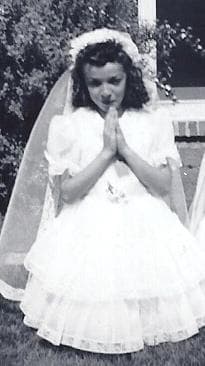Advertisement
In Awkward Defense Of Nuns
These days I find myself in the awkward position of defending nuns. It’s awkward because after 12 years of parochial school, I left the church and have rarely looked back with any affection for the experience or the sisters who taught me.
In first grade I developed a rapid-blink facial tic and had horrific dreams about boiling in oil and having my eyes plucked out, like the Christian martyrs the nuns extolled as role models. For minor infractions like talking out of turn, kids were forced to don baby bonnets and were paraded through classrooms to the jeering laughter of their peers, like Chinese political prisoners made to wear dunce caps during the revolution.
When I saw “The Magdalene Sisters,” the 2002 film about the psychological abuse of female inmates at the hands of Irish nuns, it felt like a documentary to me. Especially when one of the nuns got nose to nose with an inmate and asked in a high, witchy voice: “are ye an eejit, then?”
I wasn’t called an “eejit,” (an idiot) but I was continually told I was “bold” for asking questions or speaking before I was spoken to. “You are bold, Miss Leone”, was the daily invective hurled at me in those days. “Bold” wasn’t a virtue then, it was the hallmark of an insurgent who questioned authority. And along with reading forbidden books, seeing films condemned by the Legion of Decency or not memorizing the catechism, it was a punishable offense.

I learned about the outside world and about social activism not from the nuns, but from Martin Luther King, Bob Dylan and Simone de Beauvoir. I became a committed and effective activist after I had a severely disabled son and had to fight for his right to be regarded as fully human.
In June of this year, a band of Catholic nuns mounted a 14-day bus tour to protest Republican federal budget proposals that included steep reductions in programs that assist the poor, the elderly and the disabled. These courageous sisters were attacked by the church hierarchy for living according to the vows they took to relieve human suffering. This most recent rebuke comes after the Vatican issued an April report criticizing the Leadership Council of Women Religious for focusing too much on social justice and not enough on abortion and same-sex marriage. The priests in charge, who presumably took the same vows as the nuns, chose to focus their wrath on these sisters who work on the front lines of poverty, in the soup kitchens, the homeless shelters and other places that rarely hear the swish of a soutane.
Earlier this month in Charlotte, in a speech before the Democratic National Convention, the nuns’ spokeswoman, Sister Simone Campbell, received thunderous audience applause when she said, “Mitt Romney and Paul Ryan are correct when they say that each individual should be responsible. But their budget goes astray in not acknowledging that we are responsible not only for ourselves and our immediate families. Rather, our faith strongly affirms that we are all responsible for one another... I am my sister's keeper. I am my brother's keeper.”
Let me join the enthusiastic applause of that audience. I may not have learned about social activism from my parochial school teachers, but I recognize it when I see it. To each Catholic nun who is challenging the status quo, I say, you are bold, Sister. Keep challenging the false authority of those who diminish the lives of the marginalized. My now-unblinking, ex-Catholic eyes are wide with admiration for you and your cause.
This program aired on September 18, 2012. The audio for this program is not available.